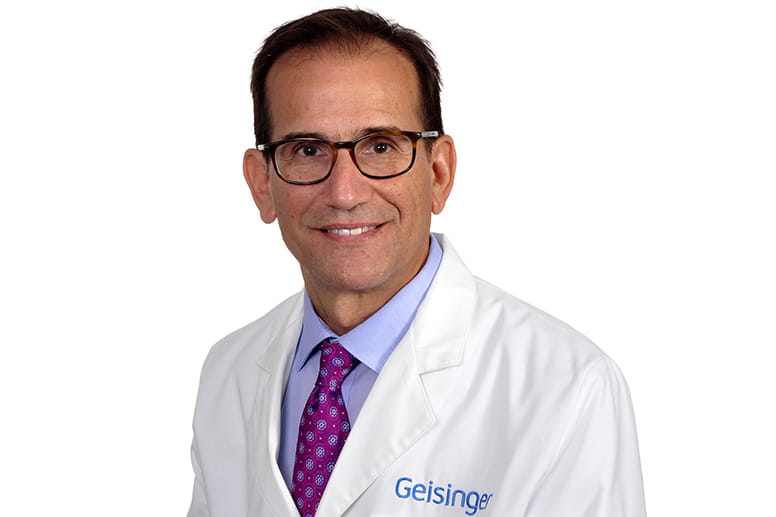
Otolaryngology Residency
Putting humanity at the center of our practice.
About us
J. Scott Greene, MD, FACS, emeritus program director
As a Geisinger otolaryngology resident, you’ll gain the technical skills that will serve you throughout your career. But you’ll also develop the habits of dedication and self-motivation for continued lifelong learning and professional development. We foster a sense of dignity and humanity in all of our residents that they then carry into the world with them.
We believe this is one of the best otolaryngology residency programs to hone your skills. Geisinger isn’t just a compassionate, caring community organization — it’s unique. We’re located in a beautiful, rural environment and patients travel hundreds of miles to seek our care. We serve a diverse population that includes both rural and urban dwellers from all walks of life and economic backgrounds, and the opportunities for real-life learning are unbeatable. Choose Geisinger and you’ll receive daily one-to-one faculty-to-resident mentoring in clinics and surgery, balanced exposure to subspecialty fields within otolaryngology and head and neck surgery, a strong educational conference schedule and curriculum, dedicated research time and support, and collaborative opportunities with multiple specialties.
Of course, there’s life outside of your otolaryngology residency — and here, among the Pocono Mountains, you can enjoy the best of it through outdoor recreation and small-town charm. You won’t just serve a community here; you’ll be part of one.
Message from the chair
At Geisinger, we have a rich history dating back to the medical center opening ahead of schedule in 1915 to meet the needs of our community during a typhoid epidemic. Since 1936, the Department of Otolaryngology has championed best practices in our rural health mission: starting the residency program in 1954; introducing the head and neck cancer House of Care (offering housing for cancer patients who travel significant distances); and being among the first interdisciplinary tumor boards in the country. The world has changed a lot in the last 25 years — and Geisinger has grown into a health system with 10 hospital campuses that encounters large patient volumes and advanced disease.
Our department performs over 3,500 surgery cases, sees more than 25,000 new patients and performs 30,000 audiology procedures annually in a catchment area of 3.5 million people. Unlike the typical hub-and-spoke health system model, we’re strengthening our network to create a contiguous health system that has one definition of best practice, easy access to care over a large geographic area and affords a seamless patient journey. This approach brings a richness to the residency program, as subspecialty service lines throughout the system drive challenging cases to our centers of excellence. For example, we have one head and neck cancer tumor board for the entire system, vetting all cases regardless of their location or provider and tallying patients with a living database dashboard that monitors complications and outcomes.
This is an exciting time to be with the Department of Otolaryngology at Geisinger. Since my arrival as chair in August 2019, it was immediately apparent that the greatest features that set us apart are the goodness of our people, the commitment to care for our community (a mission that has not changed since 1915), and openness to change in an environment of diversity and inclusion. As we grow our facilities, faculty and technology to redefine the future, Geisinger’s strengths in health services and quality outcomes research will define our program nationally. Together with Geisinger Commonwealth School of Medicine, clinical student rotations in audiology, speech and language pathology, nursing and physician assistant programs, we know you will find this to be an excellent residency experience.

Kenneth W. Altman, MD, PhD
Chair
Department of Otolaryngology – Head and Neck Surgery/Facial Plastic Surgery
